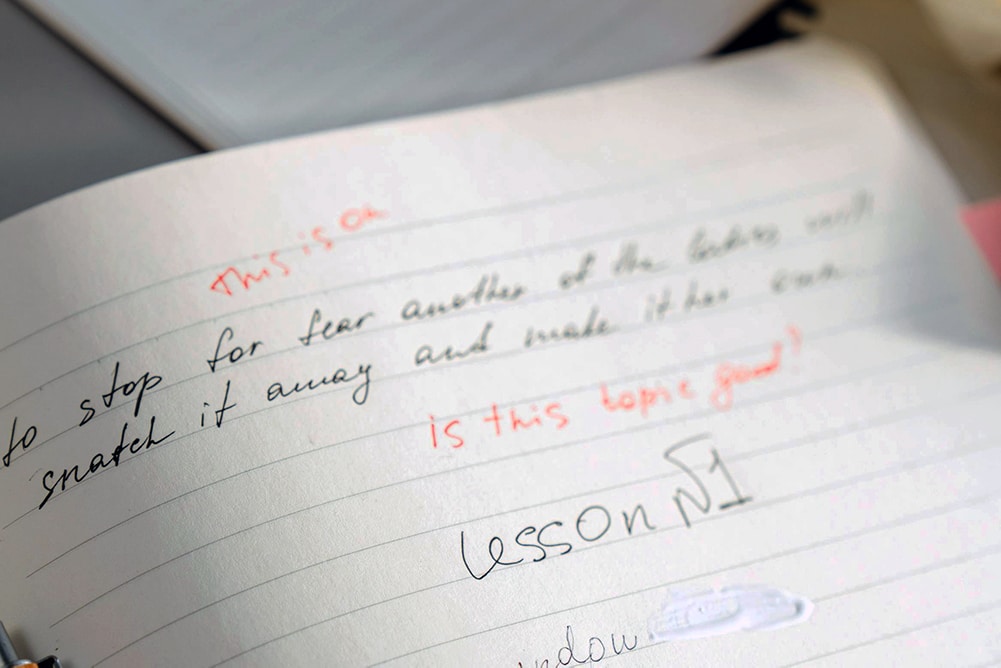In our fast-paced, digital world, we’re glued to our screens. Typing has become second nature, especially when it comes to taking notes. But did you know the benefits of handwritten notes go beyond convenience? Going old-school with a pen and paper could actually make you smarter. Notetaking by hand can boost your brainpower in ways typing can’t. Let’s dive into why this simple life hack is so effective.
The Benefits of Handwritten Notes
Handwriting notes isn’t just about putting pen to paper—it’s a powerful tool that enhances learning, memory, and focus. Unlike typing, which is often mechanical and passive, writing by hand engages your brain in meaningful ways, helping you retain information more effectively and stay focused.
When you compare handwriting vs typing, it becomes clear how handwriting encourages deeper engagement with the material. Beyond these advantages, the benefits of handwriting extend to fostering creativity and improving your ability to process complex information in unique ways. It’s not just about the act itself—it’s about how it transforms your cognitive engagement.
Let’s explore how these benefits of handwritten notes can make a real difference in your daily life.

Engage Your Brain on a Deeper Level
When you handwrite notes, your brain is doing more than just writing words. Studies show that it engages multiple areas, including those responsible for memory, understanding, and creativity. The act of writing forces you to slow down, process the information, and summarize it in your own words. This deep processing helps improve your understanding and recall of the material.
Typing, on the other hand, is faster and often more mechanical. While you can capture a lot of information quickly, your brain doesn’t engage with it as deeply. So, if you’re looking to really absorb what you’re learning—whether it’s during a meeting or while studying—handwriting wins every time. The benefits of handwritten notes truly shine here, allowing you to engage with your thoughts and material on a much deeper level.

Boost Memory and Retention
Remember the last time you typed out notes and then immediately forgot them? You’re not alone! Handwriting helps lock information into your long-term memory. This is because writing by hand forces you to think about each word and how it connects to the overall idea. The more effort you put into this process, the better your memory becomes.
In contrast, when you type, it’s easy to copy down information without fully thinking about it. This can lead to less retention, meaning you’ll have to revisit the material more often to recall the details. By leveraging the benefits of handwritten notes, you’re not only learning more effectively but also retaining that knowledge for the long term.

Improve Focus and Creativity
\Ever find yourself distracted by notifications while typing notes on your computer or tablet? Handwriting offers a way to avoid these distractions. With fewer interruptions, you can focus better on the task at hand. Plus, the slower pace of handwriting often sparks creativity, giving your brain the time and space to form new ideas and connections. Combining handwriting with small productivity hacks, like chewing gum to boost concentration, can help you maximize both your focus and creative potential.

Handwriting and Cognitive Aging
Handwriting isn’t just beneficial for students or professionals—it’s also a valuable practice for maintaining cognitive health as we age. Engaging in the physical act of writing stimulates the brain, preserving fine motor skills and enhancing memory. Research suggests that handwriting can help older adults retain information and slow cognitive decline, making it a simple yet powerful exercise for brain health.

Practical Tips for Effective Handwritten Notes
If you want to make the most of handwritten notes, here are some tips to try:
- Summarize, Don’t Transcribe: Instead of copying verbatim, condense information into key points and phrases.
- Use Visual Techniques: Try mind maps, diagrams, or bullet journaling to organize ideas creatively.
- Color Code Your Notes: Use different colored pens to highlight main points, supporting details, and action items.
- Practice Consistent Formatting: Develop a structure, such as headings, subheadings, and indentation, to make reviewing notes easier.
- Review Regularly: Revisit your notes to reinforce your memory and understanding.
Handwritten vs Digital Notes: Pros and Cons
Both handwritten and digital notes have unique strengths, and the best option depends on your goals. Writing by hand encourages you to slow down, process information deeply, and retain it better. It also reduces distractions and fosters creativity, making it an excellent choice for learning, brainstorming, and focusing on complex ideas. On the other hand, digital notes are faster and more efficient for capturing large amounts of information. They are easy to organize, search, and share, and they allow for multimedia elements like images and links to enhance the notes. While handwriting excels in memory retention and focus, digital notes are ideal for speed and accessibility. Combining both methods can help you maximize their respective benefits.

Next time you take notes, reach for a notebook and pen. This simple switch not only sharpens focus and boosts memory but also enhances creativity and deepens your understanding. Embrace the benefits of handwritten notes to unlock your brain’s full potential and transform the way you learn.











